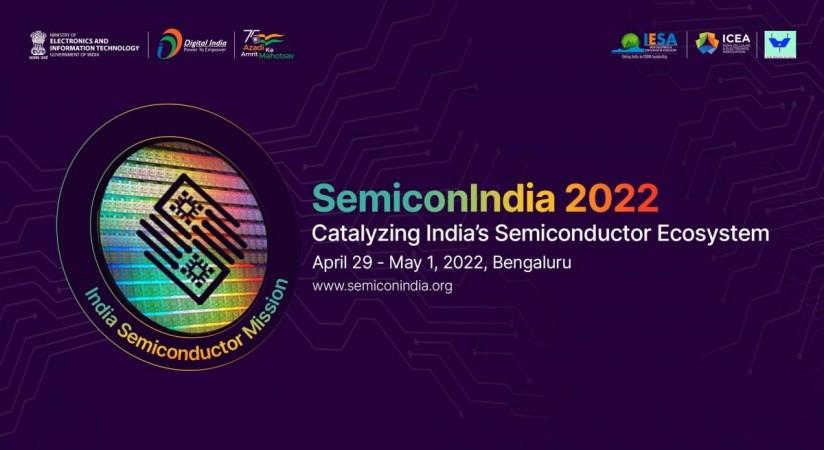The global shortage of semiconductors emerged as a serious concern for manufacturers, which was worsened by China lockdowns and Russia-Ukraine war. In this regard, Intel CEO Pat Gelsinger warned that the global chip shortage won't ease till 2024. Amidst the growing concerns of semiconductor supply, India is emerging to be a global hub for semiconductor design, manufacture and innovation.
Prime Minister Narendra Modi inaugurated the three-day semiconductor conference via video conference on Friday, to take forward the vision of the Prime Minister that is to make India a leader in electronics manufacturing, semiconductor design, manufacturing and innovation.
Semicon India 2022

Semicon India 2022 conference will attract the best minds from across the world from the semiconductor industry, research and academia, and will act as a launchpad for India's ambition to become a global semiconductor hub. The steering committee includes a mix of start-ups, academia and global industry leaders demonstrating the government's collaborative approach to powering India's Semiconductor and electronics manufacturing ambitions.
Semicon India 2022 Conference will be organised by the Ministry of Electronics and Information Technology from April 29 to May 1 in Bengaluru around the theme of -- Design and Manufacture in India, for the World: Making India a 'Semiconductor Nation'. The event focuses on policy, talent and how the government can create a favourable growth environment.
India's interest in the semiconductor space is comprehensible seeing the country's semiconductors consumption is to cross $80 billion by 2026 and $100 billion by 2030. The government already announced Rs 76,000 crore incentive in December 2021 and the conclave fortifies the government's commitment.

"I'm glad that such a conference is being hailed in India. After all, semiconductors are playing a critical role in the world in more ways than we can imagine. It is our collective aim to establish India as one of the key partners in global semiconductor supply chains. We want to work in this direction based on the principle of high tech, high quality and high reliability," PM Modi said during the inauguration.
Rajeev Chandrasekhar, Minister of State for Electronics & Information Technology and Skill Development & Entrepreneurship highlighted how India is serious about its semiconductor plans, unlike other countries that think it is a "fashion of the month."
"We are ready to support you to create a global semiconductor system riding on our sincerity. We are here to committed to make reliable supply chain," Ashwini Vaishnav, Minister for Railways, Communications, Electronics & Information Technology, said.
Why India is ideal investment destination for semi-conductor tech?
From having the most favourable taxation structures to investing in developing capabilities in 5G, IoT and clean energy technologies, India is at the forefront of technology trends. Prime Minister Modi, in his speech, pointed out six reasons that make India the ideal destination for investment in semiconductor technologies.
- "We are building the digital infrastructure to connect over 1.3 billion Indians. You have all heard of India's financial inclusion, banking and digital payment revolution. UPI is the world's most efficient payment infrastructure today. We are using digital technology to transform lives in all sectors of governance from health and welfare to inclusion and empowerment. We are one of the largest consumers of data per capita. And we continue to grow."
- "We are paving the way for India to lead the next technology revolution. We are on our way to connect six hundred thousand villages with broadband. We are investing in developing capabilities in 5G, IoT and clean energy technologies. We are working to unleash the next wave of innovation in data, AI and other technologies."
- "India is headed for robust economic growth. We have the world's fastest growing Startup Eco-system. New unicorns are coming up every few weeks. India's own consumption of Semi-conductors is expected to cross $80 billion by 2026 and $110 Billion by 2030.
- "We have undertaken wide ranging reforms for improving ease of doing business in India. Last year, we abolished more than 25,000 compliances and gave a push towards auto-renewal of licenses. Similarly, digitization is also bringing speed and transparency to the regulatory framework. Today, we have one of the most favourable taxation structures in the world.
- "We are investing heavily in skilling and training young Indians for the needs of 21st century. We have an exceptional semi-conductor design talent pool which makes upto 20% of the world's semiconductor design engineers. Almost all of the top 25 semi-conductor design companies have their design or R&D centers in our country."
- "We have undertaken several measures towards transforming the Indian manufacturing sector. At a time when humanity was fighting a once in a century pandemic, India was not only improving the health of our people but also the health of our economy."

















![Limited edition Phone (3a) launched in India; what's special about it [read now]](https://data1.ibtimes.co.in/en/full/825642/limited-edition-phone-3a-launched-india-whats-special-about-it-read-now.png?w=220&h=135)